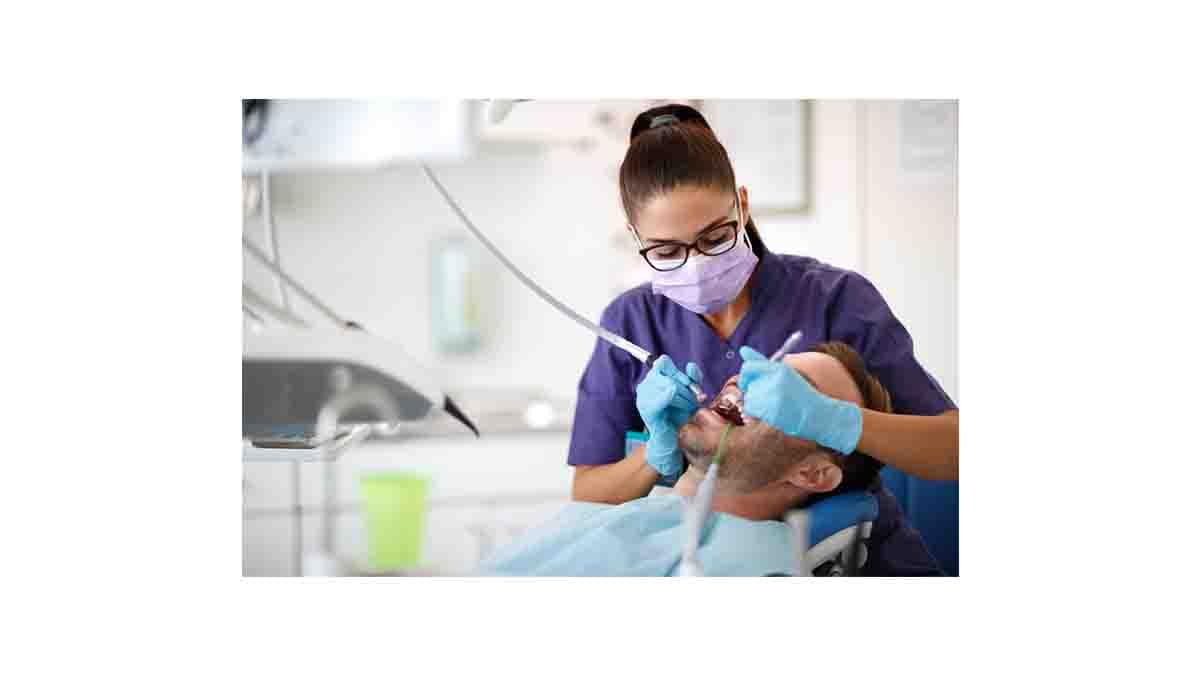Is Dental School Harder Than Medical School? For many students, deciding between dental school and medical school is the most challenging of their academic lives.
The curriculums of dental and medical schools are identical for the first two years. For dental students, the focus shifts to oral medicine, whereas medical students must concentrate on human physiology, anatomy, and patient care.
This article will compare dental and medical school and help you understand the difference between them.
Is Medical School Worth It?
Medical school isn’t for the faint of heart, and it frequently requires a substantial financial and time commitment.
Medical knowledge and practice are highly standardized over the world. Graduates from European medical schools or colleges are eligible to serve in any hospital across the globe, including those in South America. This isn’t true in many other fields of study!
Choosing to study in another country may require you to learn the language of the country in which you plan to practice medicine. Determine whether or not your English abilities are sufficient to graduate and practice medicine in the country where you plan to study.
Benefits of being a Doctor:
Working to improve the quality of life for patients may be an extremely fulfilling experience. As a doctor, you can see your job’s immediate influence on people’s lives.
Doctors’ work is highly regarded in society, even if you don’t always get the results you want.
There may not be an option to choose which town or city you want to practice medicine, but it is common to be allowed to rank your top choices.
Traveling and working abroad can be a great way to give back to those in need, especially in less developed nations.
This would allow you to learn about various cultures while showing compassion for others.
Is Dental School Worth It?
Dental school is worth it for people who want to spend eight years in education to become a professional.
The dental school offers a financially rewarding and personally rewarding career in exchange for the significant financial burden.
Dental schools require applicants to have at least three years of undergraduate study or a bachelor’s degree, dental experience, and pre-dental extracurricular activities.
The majority of dental schools demand a bachelor’s degree as well. However, some require three years of undergraduate study.
Benefits of being a Dentist:
Dentistry is one of the most stable professions in the country because of the great need for dental care.
Even for dental assistants who have received formal training, the field has one of the lowest unemployment rates in the country.
People of all ages need to take care of their teeth and gums. Dentists, on the other hand, offer a slew of additional services.
In recent years, the number of persons seeking cosmetic dentistry services in dental offices has risen dramatically.
As more and more dentists retire, the need for new dental professionals with hands-on training and real-world experience grows.
On the other hand, dentistry is one of the few professions that prioritize providing patients with high-quality care.
There are two types of dental assistants: those who assist dentists and those who help patients.
Patients’ smiles and self-images can be restored, and their speech and eating abilities can be restored after graduation from dentistry school.
You can assist patients in maintaining their quality of life by encouraging them to adopt healthy habits.
Read more:
- Top Dental schools in Georgia
- Dentistry in Spain (Top Dental Schools, Dental Programs, Career)
- Top 5 Easiest Dental Schools to get into
- 5 Most Beautiful Medical Schools (FAQs)
- Most expensive Dental Schools in the United States (Expert Research)
Is Dental School Harder Than Medical School?
1. Which School’s Admissions Process Is More Difficult?
Suppose you’re considering the difficulty of getting into a medical or dental school.
In that case, you have to look at the number of institutions offering these programs and the total number of applicants who applied and were accepted.
Because there are many more medical schools in the United States than dental schools, the number of people applying to medical school is also significantly higher.
As a result, it’s reasonable to assume that getting into medical school is more difficult.
Medical school admissions are much more competitive than dental school admissions because there are so many medical schools.
The average undergraduate GPA is 3.7, and the average MCAT score is 511, making the average MD matriculant in the 82nd percentile.
The average GPA and MCAT scores for DO matriculants are 3.5 and 503, respectively, placing them in the 61% percentile.
2. The Characteristics of the Educational Program:
Dental and medical school education programs should be examined to determine which school is more difficult.
| School for Dentists | School for Medical Students |
| Term – four years | A period of four years (followed by residency and fellowship) |
| Emphasis on the teeth | Human structure, anatomy, function, and pathophysiology are covered in depth in the programs. |
| When students graduate, they should be able to practice as general practitioners without supervision. | Student ability to enter residency; exposure to medical specialties; and development of patient-care skills are the outcomes of the programs |
| Approximately 800 to 1000 clock hours of study in biomedical sciences. | Studies in the biomedical sciences typically take 1,500-1,800 hours of class time. |
| Clinical education includes the completion of in-mouth procedure requirements, intensive hands-on instruction, and patients allocated to students. | Clinical education occurs in various settings, including patient care facilities, community clinics, and physician offices. |
| 60 to 80 unique courses | The first two years have 15 to 20 total courses; the third year has 6 to 8 multi-week rotations; the fourth year has several multi-week rotations and a significant amount of electives; the third and fourth years have few courses. |
Is Dental School Harder Than Medical School?
Going from dental school to medical school can indeed be extremely stressful. Your family’s expectations may change, and you may be unsure if this is the right choice for you.
However, it is possible to switch schools if you put in the effort and are persistent enough.
The curriculum is nearly identical in the first two years of college, so the transition should be relatively easy.
Things can get tricky if you’re already in a residency program and decide to change your career path to dentistry.
Hopefully, you’ll be able to make it in before the practical part of dentistry begins.
Read more:
- Old MCAT to New MCAT Conversion | Complete guide
- MCAT vs. DAT (Meaning, Similarities, Differences, Study tips)
- 514 MCAT (Meaning, Good MCAT score, Poor MCAT score)
- How many times can you take the MCAT?
- How To Request For A Medical School Letter Of Recommendation
- How To Become A Child Psychiatrist (FAQs, Schools)
Dental School vs. Medical School:
Dental school and medical school both present unique challenges, but they do so in different ways. Both schools follow a similar curriculum from kindergarten through high school.
According to some, the lack of a residency program in dental school makes it harder for students to develop their abilities. The dental school offers a condensed four-year curriculum.
In dentistry and medical degrees, however, students must have a keen intellect, commitment, sincerity, altruism, practical experience, and the capacity to think quickly.
Dental School vs. Medical School: Key Differences
| Feature | Dental School | Medical School |
|---|---|---|
| Primary Focus | Concentrates on oral health, including teeth and gums. | Covers a broad spectrum of general health and bodily systems. |
| Duration | Generally 4 years, followed by specialization if desired. | 4 years, followed by a residency program (3-7 years on average). |
| Degree Obtained | Doctor of Dental Surgery (DDS) or Doctor of Dental Medicine (DMD). | Doctor of Medicine (MD) or Doctor of Osteopathic Medicine (DO). |
| Residency | Optional; 2-6 years for specialization (e.g., orthodontics). | Mandatory; varies by specialty (e.g., 3 years for family medicine). |
| Licensing Exam | National Board Dental Examination (NBDE). | United States Medical Licensing Examination (USMLE). |
| Job Prospects | Dentist, Orthodontist, Oral Surgeon, etc. | Physician, Surgeon, Specialist, etc. |
| Patient Interaction | Frequent, often seeing patients for routine check-ups. | Varies widely based on specialty – from primary care to surgery. |
| Nature of Work | Procedures are generally confined to the mouth. | Procedures can be throughout the body or specialized. |
| Earnings Potential | High; but can vary based on location and specialization. | Very high; varies significantly based on specialization. |
| Training Emphasis | Hands-on procedural training is emphasized early on. | Initial focus on broad medical knowledge, with hands-on training during residency. |
Remember, both paths require commitment, dedication, and a genuine desire to help others. Choosing between them should be based on personal interests and career aspirations.
Frequently Asked Questions on Dental School vs. Medical School:
Medical school is both practical and academically demanding. Analytical and critical thinking are essential in law school. The amount of reading and writing required in law school is significantly more than that of medical school, which emphasizes learning about problems through clinical investigations and actual practice.
Medical colleges are looking for the brightest and best students. That’s why it’s so difficult to get into college. On paper, the majority of applicants appear to be the same.
The nation’s great demand for dental treatment makes dentistry a highly secure employment option. The business has one of the lowest unemployment rates in the United States, especially for dental assistants with practical training. Oral health care is essential for individuals of all ages.
Working in dentistry gives you the freedom to run your own business. Dentists can find a balance between their personal and professional lives. In addition to private practice, teaching, research, and administrative positions in dentistry are also available in the public sector.
Conclusion:
The path to becoming a dentist or doctor should be clear if you truly want to pursue that career.
Doctors indeed save lives, but their significance goes well beyond that. Helping patients manage pain, speed up recovery from disease or cope with an incapacitating injury are also important contributions made by doctors.
Patients and their loved ones benefit greatly from their capacity to enjoy life, even if they cannot heal.
Awesome one; I hope this article answers your question.
Editor’s Recommendations:
- Top 5 Best Medical Schools in Ohio (FAQs)
- 10 Best Medical Schools for Pediatrics (Duration, How-to, FAQs)
- 10 Best Medical Schools in the Philippines (How-to, Cost, FAQs)
- 8 Best Medical Schools in Nigeria (Duration, Requirements, FAQs)
- 4 Best Jesuit Medical Schools in the US (Meaning, Duration, FAQs)
If you find this article good, please share it with a friend.




